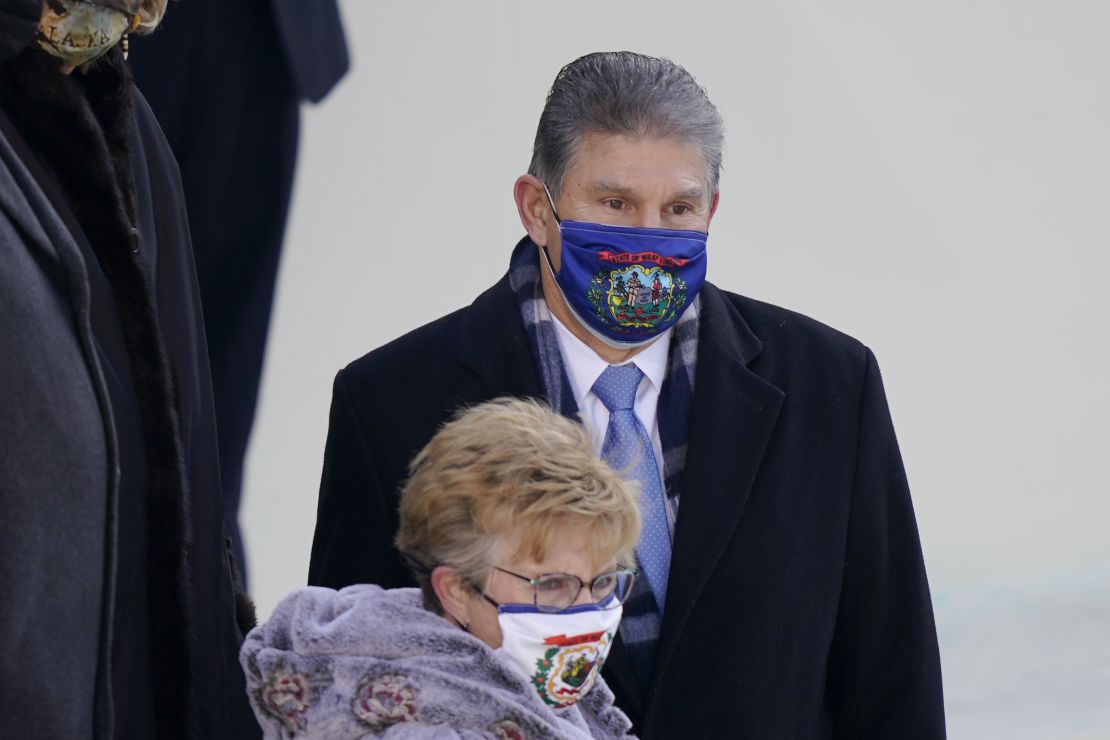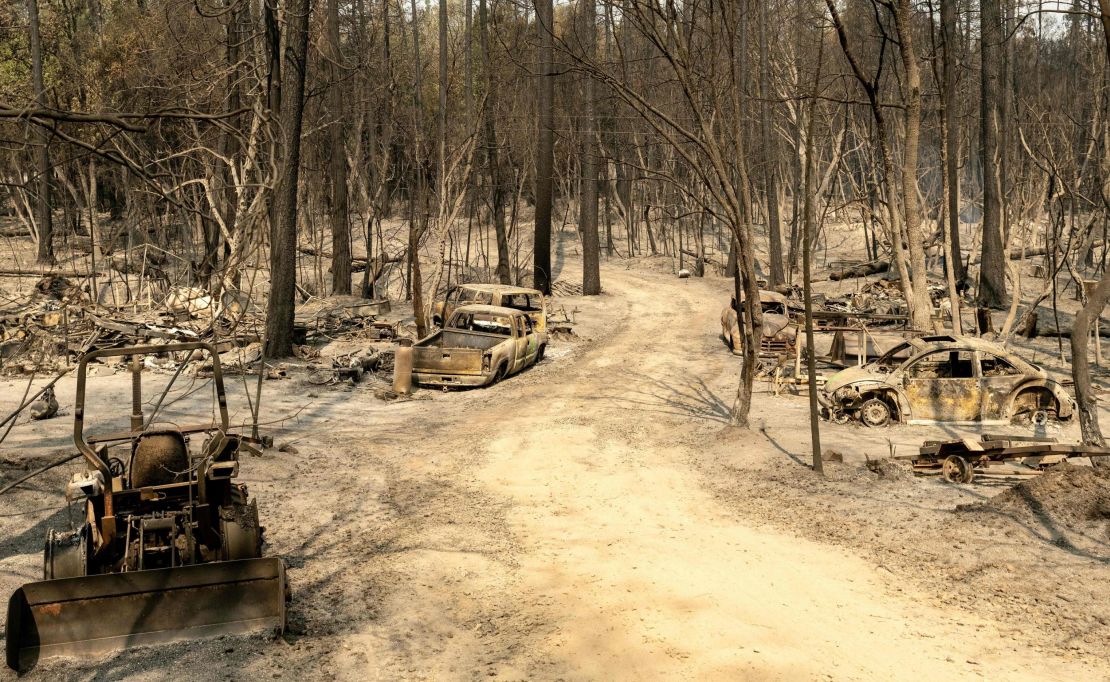Joe Manchin once shot a hole in the climate-saving plan of his own party. Literally.
It was 2010 and, as he ran to be a senator from coal country, the Democrat reminded West Virginia that “I sued the EPA and will take dead aim at the Cap-and-Trade bill,” before raising his rifle and blasting a copy of the proposed legislation pinned to plywood.
A decade later, Manchin is just a skosh left of center in a 50-50 Senate – an important vote for any legislation President Joe Biden wishes to pass from his agenda, which includes a climate plan vastly more ambitious than any in US history.

With two rounds of executive orders, the new President is commanding every agency in the government “be guided by the best science” in rolling back dozens of Trump-era breaks and bonuses given to coal, oil and gas companies.
He’s halted any new drilling and fracking leases on federal land and water, given climate hawks like John Kerry and Gina McCarthy Cabinet-level powers and, within hours of taking the oath, rejoined the 185 nations that have ratified the promise of the Paris Accord to break humanity’s fossil fuel addiction.
“We come back, I want you to know, with humility for the absence of the last four years, and we’ll do everything in our power to make up for it,” Kerry told a United Nations conference on climate change adaptation this week. “I’m so happy to hear John say this,” replied Mark Rutte, Prime Minister of the Netherlands. “Because we need the US at the center of the action.”

Scientists insist that to halt the out-of-control overheating and avoid destruction by fossil fuel, humanity will need a sweeping Industrial Revolution 2.0, and fast.
Senate Majority Leader Chuck Schumer, a New York Democrat, is urging Biden to declare a climate emergency and use the enhanced powers the way Trump used them on his border wall. But the President can only do so much with the stroke of a pen.
Opposition is almost assured from Republicans like Sen. Ted Cruz of Texas, who has already turned Donald Trump’s line “I represent the people of Pittsburgh, not Paris” into a Pittsburgh > Paris bumper sticker. In reality, Biden won Allegheny County, where 81% say carbon dioxide should be regulated as pollution and two-thirds of Americans support the Paris reunion, including nearly a quarter of Republicans.
And if there is no Republican support for the change that can only come from legislation, Biden really needs Joe Manchin.
While the senator declined our request for an interview, a statement released on inauguration day said: “I agree that President Biden must renew America’s leadership on climate change through innovation. It is an issue that threatens every community, in every country across the globe. I also uphold my view that the Paris Agreement must be improved to set all nations on the same stage and hold each to the same standards of accountability.”
Not exactly a ringing endorsement from the incoming chairman of the Senate Energy and Natural Resources Committee. Even the American Petroleum Institute and the US Chamber of Commerce appear more excited about Biden’s decision.
“It’s hard to substantiate which one is more or less of a threat,” said Varshini Prakash, co-founder of the Sunrise Movement, when I asked if she is more worried about Ted Cruz or Joe Manchin.
“We will need to put pressure on Republicans who are up for reelection in the Senate in 2022. We will need to put pressure on Democrats who are in more conservative states right now. We will need to also pressure leadership like Chuck Schumer and Nancy Pelosi to fight like hell to pass climate policy, not just cater to those who are holding us back from Congress,” she said.

And as part of a coalition that successfully pushed Biden to be much more ambitious, she hopes Democrats will blow up the filibuster and pass automatic voter registration.
“I think the key here is that Joe Biden cannot litigate these issues behind closed doors with obstructionist Republicans,” she added. “He cannot immediately moderate or temper his vision. There’s this false sense that just taking a policy and moderating it or making it milquetoast will make it apply to a broader swath of people. But that’s simply not true.”
“We are miles past what I thought was impossible at the beginning of the primary campaign,” says David Wallace Wells, author of “The Uninhabitable Earth,” a best-selling roundup of the latest climate science and real-time evidence of the cost of willful ignorance.

In a recent piece, he declared “the war on climate denial has been won.” Given the surge of ambition from Beijing to DC and the fact that a Republican Senate voted 92-6 to include $35 billion worth of green spending in a Covid relief bill, he has fresh optimism.
“We’re seeing movement even among people on the right,” he told me. “Again, they are not moving nearly fast enough. But I think it’s a sign that the conceptual terms under which we are conducting our political arguments have really shifted. I think we’re seeing this because we’re seeing climate change.”
But will Manchin see it through his rifle scope or a lens of approval? Both his father and grandfather were mayors of a small mining town and every one of his political calculations begins with the welfare of the 20,000 West Virginians who depend on the fossil fuel industry to survive.
But his score from the League of Conservation Voters went from 20 to 86 in recent years as he joined Alaska Republican Sen. Lisa Murkowski to push through the biggest public lands bill in a decade, and helped champion that $35 billion green spending spree with his hope that carbon-capture innovation can save West Virginia’s core industry.
There is one more thing to complicate matters for Manchin, Biden, and every form of life on Earth: This test is timed.


